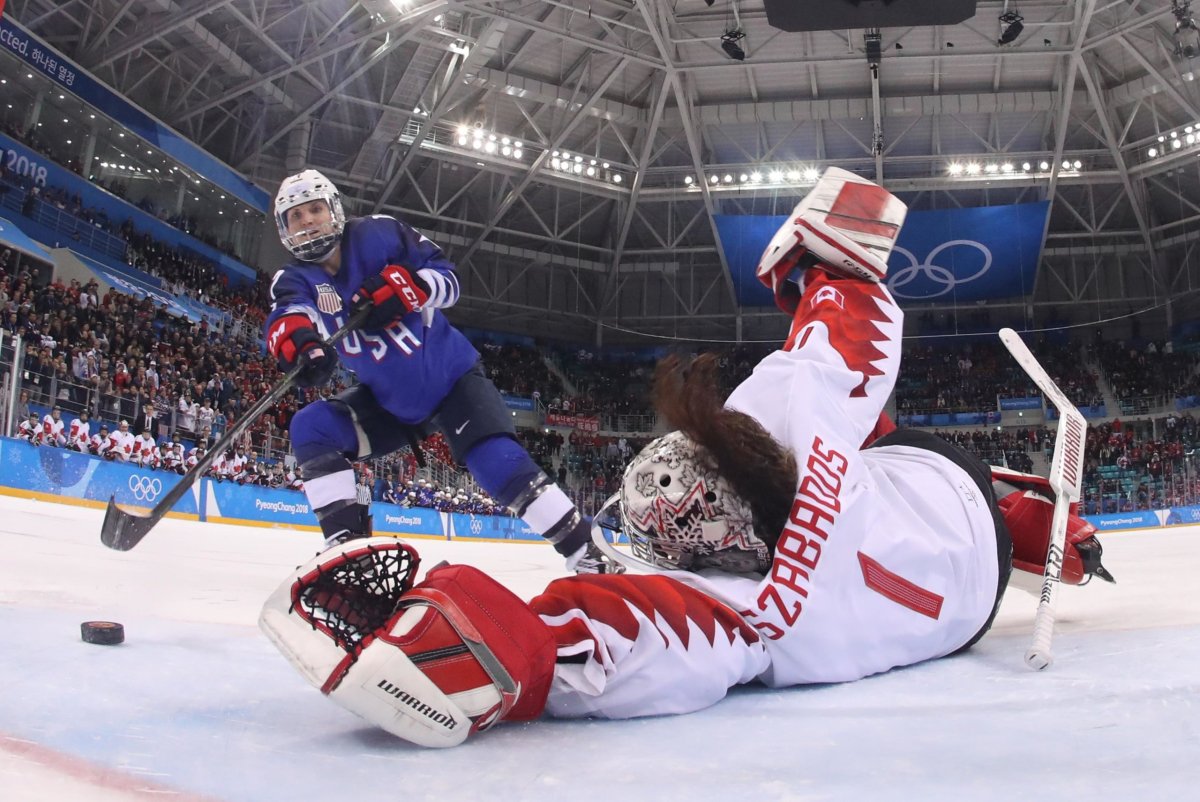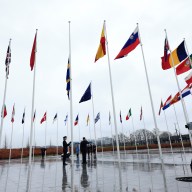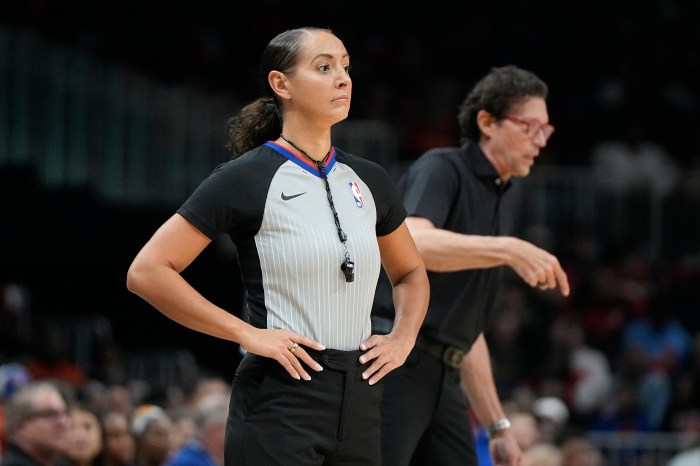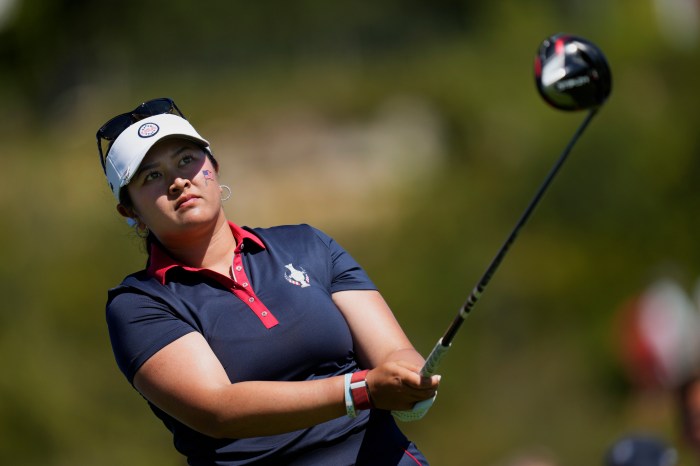By Steve Keating
GANGNEUNG, South Korea (Reuters) – The Olympic women’s ice hockey tournament will be remembered for two goals — one by Jocelyne Lamoureux-Davidson that gave the United States the gold medal and one from Randi Heesoo Griffin for a unified Korean team that found its way into the Hockey Hall of Fame.
Lamoureux-Davidson’s ‘Oops, I did it again, now you see, now you don’t’ shootout winner was a thing of beauty that gave the U.S. a 3-2 victory over archrivals Canada in the final, ending nearly two decades of gold-medal frustration.
Griffin described her historic goal, the first by the unified Korean team, as “pretty crappy” that was more luck than design. Nonetheless, it was celebrated on both sides of the demilitarized zone, from Seoul to Pyongyang, as a symbol of what two countries, still technically at war, can accomplish by working together.
The puck that dribbled between Japan goaltender Akane Konishi’s pads was collected and will now find a home in the Hockey Hall of Fame in Toronto.
On the ice, the unified Korean team accomplished very little in the way of results, losing all five games they played and scoring just twice. Off the ice, they were hailed as a symbol of the bonding power of sport while one International Olympic Committee (IOC) member suggested the team should be put forward for a Nobel Peace Prize.
In a last-minute attempt to re-engage with the North and clear the way for talks over Pyongyang’s weapons program, the South suggested just a week before the Pyeongchang Olympics were to open that they form a combined side.
The team generated tremendous interest and were one of the Olympics’ major storylines but as the Games closed on Sunday it was unclear if it was something the world would see again at the 2022 Beijing Olympics.
Sarah Murray, the unified team’s Canadian coach, said she was unsure while Rene Fasel, the head of the International Ice Hockey Federation (IIHF) was more enthusiastic.
“We are thinking about this, whether we should continue. I say, ‘Why not?’” shrugged Fasel. “I think that would be good to do it in 2022, to go to the Beijing Olympics, to keep the North and South Korean team. It is a message of peace and we hope to continue that. We will try.”
Even though there is a lack of depth in women’s hockey, Fasel said the competition in Beijing would expand from eight to 10 teams.
Certainly there was no evidence from the results at the Pyeongchang Games that the duopoly held by Canada and the United States would end anytime soon.
The two countries, who have won every gold medal since women’s hockey was included on the Olympic program at the 1998 Nagano Games, remain a class apart.
After watching Canada claim four consecutive gold medals, the U.S. ended their northern neighbors’ reign in a spectacularly entertaining final. Finland took bronze with a victory over the Olympic Athletes from Russia (OAR).
(Editing by Clare Fallon)



















